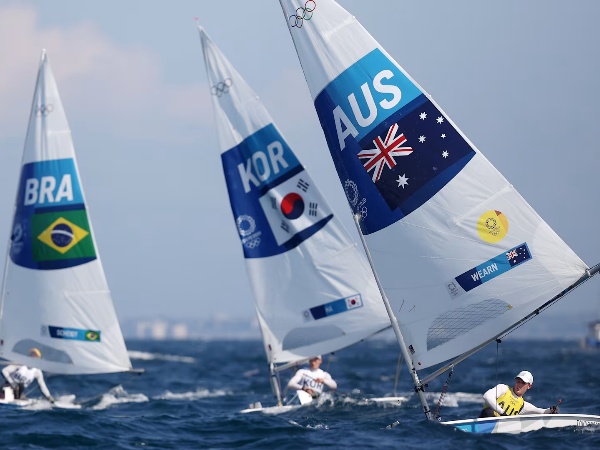All About Sailing Ahead Of The 2024 Olympic Games
In 1851, the New York Yacht Club ventured into international sailing competitions by sending members to England. Their vessel, the America, a 101-foot schooner specially constructed for the occasion, triumphed in the Hundred Guineas Cup. This victory marked the inception of international sailing races and prompted the renaming of the trophy to The America’s Cup, commemorating this historic achievement. The race not only showcased American maritime prowess but also set a precedent for future international yacht racing events. The America's Cup continues to be one of the most prestigious and fiercely contested trophies in the world of sailing, symbolizing excellence, innovation, and the enduring spirit of competition across nations.
Sailing relies entirely on harnessing wind power to propel boats through water, demanding a high level of skill and experience from competitors. Adapting to the unpredictable nature of wind and water conditions is key, making mastery of these elements crucial for sailors. In Olympic sailing events, adherence to the rules set by World Sailing, the international governing body, ensures fair competition. Races typically involve fleet racing, where equally-matched boats navigate through diverse courses, testing both speed and strategic maneuvering.
The Tokyo Games featured ten sailing events, showcasing a variety of disciplines such as windsurfing, mixed Nacra 17 Foiling, 49ers, and the 470 class. These events reflect the evolving nature of sailing, where advancements in boat design focus on reducing size and weight, thereby intensifying the physical and technical demands on sailors. The introduction of new events at the 2024 Olympic Games—windsurfer – iQFoil and kiteboarding—underscores the sport's ongoing evolution and embrace of new technologies.
In Olympic sailing, athletes must not only excel in physical prowess but also possess a deep understanding of wind patterns, water currents, and tactical strategies. The combination of these skills ensures that sailing remains a dynamic and challenging sport at the highest competitive level. As sailing continues to innovate and adapt to new technologies and disciplines, it remains a cornerstone of the Olympic Games, embodying the spirit of skill, strategy, and athleticism on the open water.
